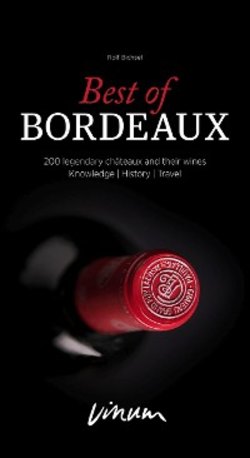Читать книгу Best of Bordeaux - Rolf Bichsel - Страница 52
Оглавление52
History Overview
56 BC Crassus conquers the Bituriges: Burdigala (Bordeaux) becomes Roman.
According to the historian Strabo there is virtually no home-grown wine, with
the drink instead being imported from Iberia and southern Italy.
71 BC Pliny visits Bordeaux – the city is entirely surrounded by vines.
400 AD The teacher and rhetorician Ausonius describes Bordeaux as ‘charac-
terised by rivers and vines'.
1154 Bordeaux comes under English rule. Wine becomes the city's most impor-
tant export product and ensures the wealth of its inhabitants.
1214 The inhabitants of Bordeaux persuade King John of England to abolish all
export taxes on wine. The ports of Bordeaux become the world's most impor-
tant wine ports at this time.
1241 Henri III Plantagenet extends the privileges of Bordeaux citizens. Wines
from other regions can only enter the city after 25 December, and thus cannot
be shipped. This privilege continues (with a few interruptions) under suc-
cessive French kings until being finally abolished in 1776 by Turgot, the first
French liberal.
1303 Bordeaux exports 102,724 tonneaux (one tonneau = four barriques = 900
litres = 1,200 modern bottles) of wine, or 924,518 hl, around the equivalent of
Switzerland's entire current annual production or around 120 million bottles!
1550 Jean de Pontac builds a ‘Maison Noble' amid his vines to the south of the
city of Bordeaux, which becomes a centre and symbol of winemaking, and
thus invents the wine chateau.
1660 François-Auguste de Pontac opens a tavern in London. It serves a wine
called Ho Bryan, which unlike the light red ‘clarets' is dark in colour and has
a ‘most particular taste', as Samuel Pepys wrote three years previously in his
famous diary. New French Claret is now in fashion.
1724 Boucher, the King's governor, bemoans the Bordeaux aristocracy's plant-
ing fever, and in 1725 forbids the planting of any new vineyards – a ban which
stands for thirty years but is e
ff
ectively ignored.
1755 Three-quarters of the income from Bordeaux's 70 top families comes
from the sale of their own wine.
1787 Future American President Thomas Jefferson travels to Bordeaux and
records his impressions in a diary. Some of the estates he names and admires
include Lafite, Margaux, Latour, Haut-Brion and Yquem.
1855 Based on previous rankings and on the prices fetched by wines, the
Bordeaux chamber of commerce establishes the first o
ffi
cial, state-sanctioned
An overview
of Bordeaux history
